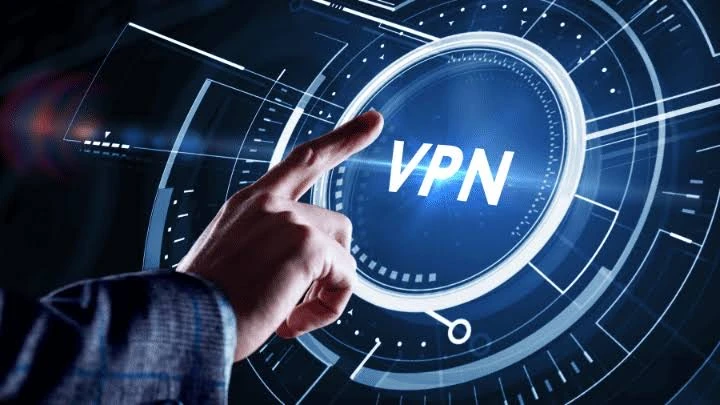The Importance of Online Privacy and the Role that VPNs Play in it
In today’s digital era, the scarcity of online privacy has become increasingly concerning, as our internet activities and personal data are seriously exploited. We must protect ourselves online to reduce the risk of malicious individuals, viruses, and data brokers using our private information for harmful purposes.
To safeguard our online privacy, having a VPN is essential. It is one of the most powerful tools for achieving this goal. VPNs are a crucial piece of the online privacy puzzle, and in this article, I’ll provide you with all the necessary information you’ll need to navigate the world of VPNs and online privacy.
What are VPNs, and How do they Work?
A VPN is a great tool for maintaining privacy and security while using the internet. By building a secret and encrypted tunnel, it protects your personal information, location, and other data from prying eyes. With a VPN, all of your network traffic is securely channeled through a connection, effectively preventing data from being transmitted from your device.
By utilising a VPN, your device’s internet connection is cleverly redirected through a private service, rather than relying on your typical internet service provider (ISP). This ingenious solution ensures that your IP address remains concealed, effectively shielding your online activities as an intermediary between you and the vast realm of the internet.
When a person connects to the internet using a VPN, their computer securely transfers information to websites across the encrypted connection established by the VPN. The VPN then routes the request and returns the response from the requested website over the connection.
Essential Reasons to Use a VPN
1. Protecting Devices
Additionally, a VPN is essential for preventing hackers from intercepting user devices, including laptops, tablets, cellphones, and PCs. Cybercriminals frequently target gadgets connected to the internet via particular networks, including open Wi-Fi. With the use of a VPN, a user may conceal the location of their device and prevent possible hackers from seeing any data on it.
2. Ensuring Internet Freedom
A VPN ensures that users can protect themselves from government surveillance by concealing their browsing history. As long as the VPN service they choose respects their privacy enough not to monitor their browser history, users can rest assured that their online freedom is being safeguarded.
3. Protecting Browsing History
Online activities of users can be closely monitored by web browsers and ISPs. These entities not only keep a record of the websites visited by users but also associate this information with their IP addresses. This data is often utilised to display targeted advertisements or even sold to third parties. Maintaining privacy becomes crucial for individuals, especially when using a shared device or web browser.
To safeguard their information, such as medical concerns, travel plans, or gift research, users can rely on a VPN to prevent their ISP and online browsers from displaying relevant ads. By using a VPN, users can ensure the privacy of their search data and keep their facts concealed.
What are VPN protocols, and how do they Determine Encryption?
VPN services rely on VPN protocols to deliver the swiftest and most secure internet connection to users. These protocols leverage a blend of encryption and transmission standards to dictate the movement of data between a user’s device and the VPN server. There are several inception protocols, so why don’t we go through a few of them?
1. Point-to-point Protocol (PTPP)
One of the earliest protocols currently in use on the internet is PPTP. It was developed by Microsoft and makes use of the Generic Routing Encapsulation (GRE) tunnelling protocol and the Transmission Control Protocol (TCP) control channel. To incorporate security features, it uses the Point-to-Point Protocol (PPP), a Layer 2 communications protocol that connects two routers directly.
While PPTP is indeed quick and easy to set up, it is primarily suited for users of older Windows versions. However, any VPN relying solely on PPTP must be avoided due to its numerous well-documented security flaws. These include weak authentication methods such as MS-CHAP, encryption vulnerabilities with MPPE, and susceptibility to man-in-the-middle attacks.
2. Internet Key Exchange Version 2 (IKEv2)
IKEv2 is a powerful protocol that ensures secure and authenticated transmission, commonly paired with IPsec. It plays a crucial role in managing request and response processes, as well as determining the security attributes of servers and devices.
With its ability to verify the authenticity and select the appropriate encryption techniques, IKEv2 supports renowned cyphers such as Advanced Encryption Standard (AES), Camellia, and ChaCha20 with robust 256-bit encryption. This protocol shines particularly in the realm of mobile device security, where it consistently delivers exceptional performance.
3. Layer 2 Tunnelling Protocol (L2TP)
This protocol combines the Layer 2 Forwarding (L2F) Tunnelling protocol with PPTP. While it lacks encryption and privacy features, it does reinforce the data tunnel provided by PPTP. As a result, it is often bundled with a security protocol like Internet Protocol Security (IPsec).
4. OpenVPN
OpenVPN is widely regarded as the most exceptional open-source VPN solution available. This incredible free software uses pre-shared certificates, secret keys, usernames, and passwords to ensure that every device or server is properly authenticated. Additionally, it leverages the robust security features of TLS and the OpenSSL encryption library, along with its own exceptional protocol for exchanging keys through SSL and TLS. Offering a broader scope, OpenVPN guarantees top-notch security, comparable to the most well-established protocols in the industry.
5. Secure Socket Tunnelling Protocol (SSTP)
Microsoft developed SSTP, a VPN tunnel that is far more secure. The secure socket layer/transport layer security (SSL/TLS) channel, which offers encryption, key negotiation, and traffic integrity checking, is used to carry PPP traffic. Consequently, the data can only be decoded by the two people who transmitted it. It is ensured that SSTP can pass through the majority of firewalls and proxy servers by using this instead of TCP port 443.
What are Some of the Advantages of Using a VPN?
The advantages of using a VPN vary depending on the provider you select. Each offers a distinct array of features crafted to provide the ultimate VPN experience for their users. Below are some of the typical benefits of using a VPN:
1. Improved Internet security
A VPN is an important security measure that protects your online activities by creating a secure connection between you and the internet. This essentially shields you from potential threats lurking in cyberspace.
On top of that, a VPN provides additional security measures such as private DNS and Kill Switch. The Kill Switch feature immediately disconnects your internet access when the VPN connection is lost, protecting your sensitive data. Furthermore, the use of private DNS fortifies the security of the information you share with websites and your online searches.
2. Unhindered access to the internet when browsing the web
You can think of the internet as an uncharted area of freedom to explore without any boundaries or restrictions. Unfortunately, things don’t always work like that. Some countries with oppressive governments often restrict internet access for their citizens, but the severity of these restrictions may vary depending on your location. Connecting to a VPN server can help you bypass censorship and access the internet freely. With secure encryption, you may surf without fear of being watched or monitored online.
3. Saving money on online purchases
While any good VPN costs money, it can also help you save some.
Some websites save your activity data and use it to increase prices. This is common when booking flights and accommodations. The more frequent your price checks, the more exorbitant the prices become. Safeguard yourself against this by wiping your browsing history and cache folders and utilising a VPN. Additionally, bear in mind that prices for products and services can vary based on your location. To secure an even more advantageous offer, experiment with different VPN servers.
4. Enhanced Safety for Gamers
Your online privacy may be at risk when you play games online. A lot of these games either don’t protect your IP address at all or do so ineffectively. Certain people might even request that you configure your network in a way that exposes you to DDoS attacks. Using a VPN to game shields you from most privacy and DDoS threats by hiding your IP address and blocking open ports.
5. File sharing is made safer and anonymized
Using a VPN is an excellent option for remote workers to ensure the security of their work and personal information while travelling. If you are working for a company that utilises peer-to-peer file sharing, a VPN will encrypt your data, providing a high level of security and keeping your identity hidden from unauthorised parties.
Potential Disadvantages of Using a VPN
Even though VPN drawbacks are a minor price to pay for internet security and anonymity, you should nevertheless take them into account before purchasing a subscription.
Lags in Internet Connection Speeds
A VPN will somewhat slow down your connection when it isn’t being throttled, even though it can help with ISP throttling. This occurs as a result of data being encrypted en route to a VPN server and then being sent to your intended internet location. Only after being decrypted at that location is the data transferred back to the VPN server and sent to your device.
The distance between you and the server, as well as the server’s level of traffic, will affect speed. When connecting to a local server using a premium VPN, the speed drop should not exceed 10% to 15%. The effect on speed will be somewhat more pronounced if you connect to a server located hundreds of miles away.
To ensure certain apps remain untouched by a VPN, you can utilise the split-tunneling feature. By doing so, you empower specific apps to fully leverage your connection speed, while the remainder of your traffic remains shielded by the VPN. This functionality is frequently employed for activities such as running financial apps or excluding data-intensive platforms like YouTube or Netflix from the protective cloak of the VPN.
Free VPN risks
Using a free VPN service can come with serious security risks, and this is evident from the fact that over 25 million user records of free VPNs were compromised in 2022. These services often impose data restrictions, offer sluggish speeds, and restrict the number of VPN servers available for users. In some cases, these providers even resort to selling user data to sustain their operations.
Legality
Although VPNs are permitted in most parts of the world, some countries have chosen to impose restrictions or even outright bans on their use. These measures are often implemented by oppressive governments seeking to monitor their citizens’ online activities. The banning of VPNs illustrates their crucial role in providing users with freedom and privacy.
Personal Thoughts
In an increasingly interconnected world where privacy and security are paramount concerns, having a VPN not only safeguards your online activities but also allows you to access geo-restricted content and browse the web with anonymity. Now that you have some of the advantages and disadvantages of VPNs placed before you, it is clear that the positives outweigh the negatives, and it only strengthens the arguments around getting a VPN.
Conclusion
In an era where online privacy is increasingly under threat, VPNs offer a crucial layer of protection for internet users worldwide. By encrypting your internet connection and masking your IP address, VPNs help safeguard your data from prying eyes and ensure your online activities remain private.
As you navigate the digital landscape, remember that your online privacy is worth protecting. Consider incorporating a VPN into your online routine to take control of your digital footprint and enjoy a safer, more secure browsing experience. Let’s use VPNs to ensure online privacy becomes a basic right for everyone, not just a privilege.

